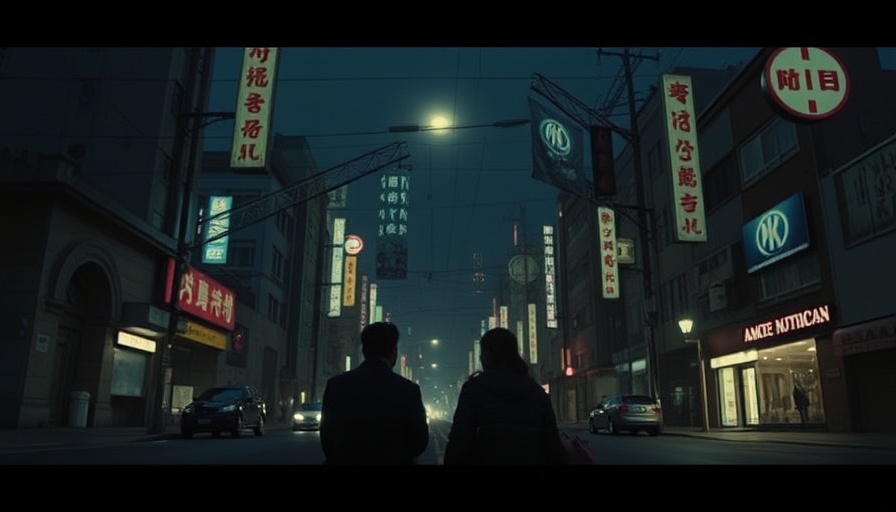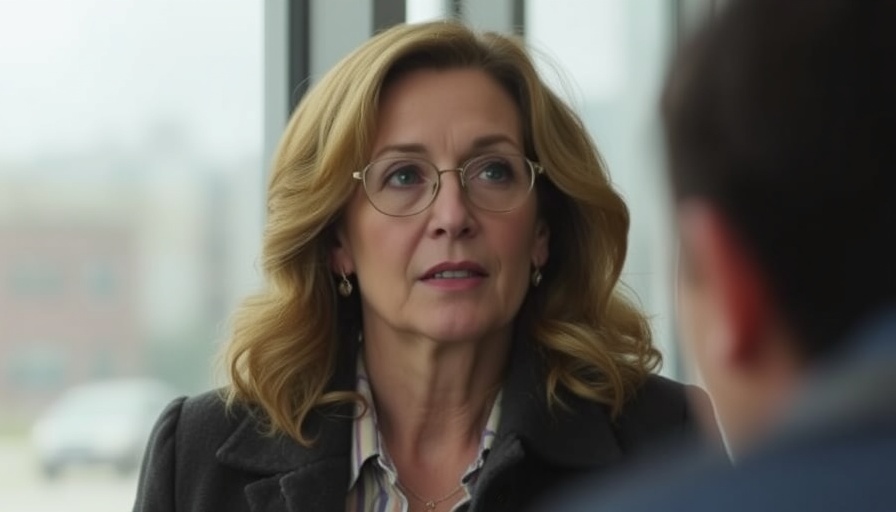
A Thrilling Exploration of Modern Masculinity in ‘No Other Choice’
Director Park Chan-wook’s latest film, ‘No Other Choice’, takes audiences on a darkly humorous journey through the complexities of masculinity, socio-economic desperation, and the fragility of family structures. The film presents a grim but insightful narrative as it unfolds through the eyes of You Man-su, a character played masterfully by Lee Byung-hun, who finds himself at a crossroads of moral choices.
The Irony of Modern Employment
Park Chan-wook’s storytelling begins at a seemingly idyllic family barbecue, set against the backdrop of a paper factory that can barely keep its doors open. This setting cleverly reflects a broader societal commentary: job security is a fragile notion in today’s economy. Man-su’s desperate bid to reclaim his position as a breadwinner drives him to a chilling conclusion: to eliminate his competition in the job market through horrendous means. This ironic twist not only serves as a critique of the contemporary job landscape but also evokes a dialogue about the lengths to which individuals might go to retain their societal roles and family dynamics.
From Comedy to Horror: A Genre-Bending Narrative
Initially presenting itself as a black comedy reminiscent of classic Ealing films, ‘No Other Choice’ rapidly transitions into a more profound horror thriller. The audience is led to believe they are in for a serial killer escapade, only to be met with unexpected narratives that focus on Man-su’s emotional turmoil and existential crises. Park masterfully blends humor and horror to engage viewers on multiple levels, prompting reflection on the absurdities of modern life.
The Psychological Impact of Job Insecurity
Job loss is not simply a financial setback; it can lead to psychological disarray, dismantling one’s sense of self-worth and personal identity. Man-su’s journey illustrates this vividly. The psychological implications of such crises are profound, as societal pressures compel individuals to adhere to traditional notions of masculinity—success, strength, and stoicism. As he grapples with the realities of his impending unemployment, it becomes evident that the desperation he feels is emblematic of a larger cultural struggle faced by many today.
The Cultural Relevance of ‘No Other Choice’
In a world increasingly defined by digital footprints and online applications, Park's decision to have Man-su communicate via paper signifies a poignant metaphor for the quest for authenticity in a digital age. This film’s satire exposes the inherent contradictions in modern employment practices, where the human touch is often sacrificed for efficiency and cost-cutting. The statement “no other choice” resonates across contexts, highlighting how individuals feel trapped in economic systems that prioritize profit over human welfare.
Conclusion: Provocative Reflection for Digital Nomads
‘No Other Choice’ is not merely entertainment; it serves as a reflective commentary on the challenges of modern masculinity and the precarious nature of job security. As a digital nomad, the themes explored in this film resonate with the struggles many face as they navigate the global job market. The film urges viewers to reflect on their choices and how socio-economic conditions shape not only personal identities but also familial relationships. In an era characterized by uncertainty, Park Chan-wook’s film challenges us to reconsider the societal structures that define our lives.
 Add Row
Add Row  Add
Add 




Write A Comment